In war, whichever side may call itself the victor, there are no winners, but all are losers (Neville Chamberlain).
War has no winners and peace no losers (Ashok Kallarakkal).
I can not believe that war is the best solution. No one won the last war, and no one will win the next war (Eleanor Roosevelt).
Hi Everyone,
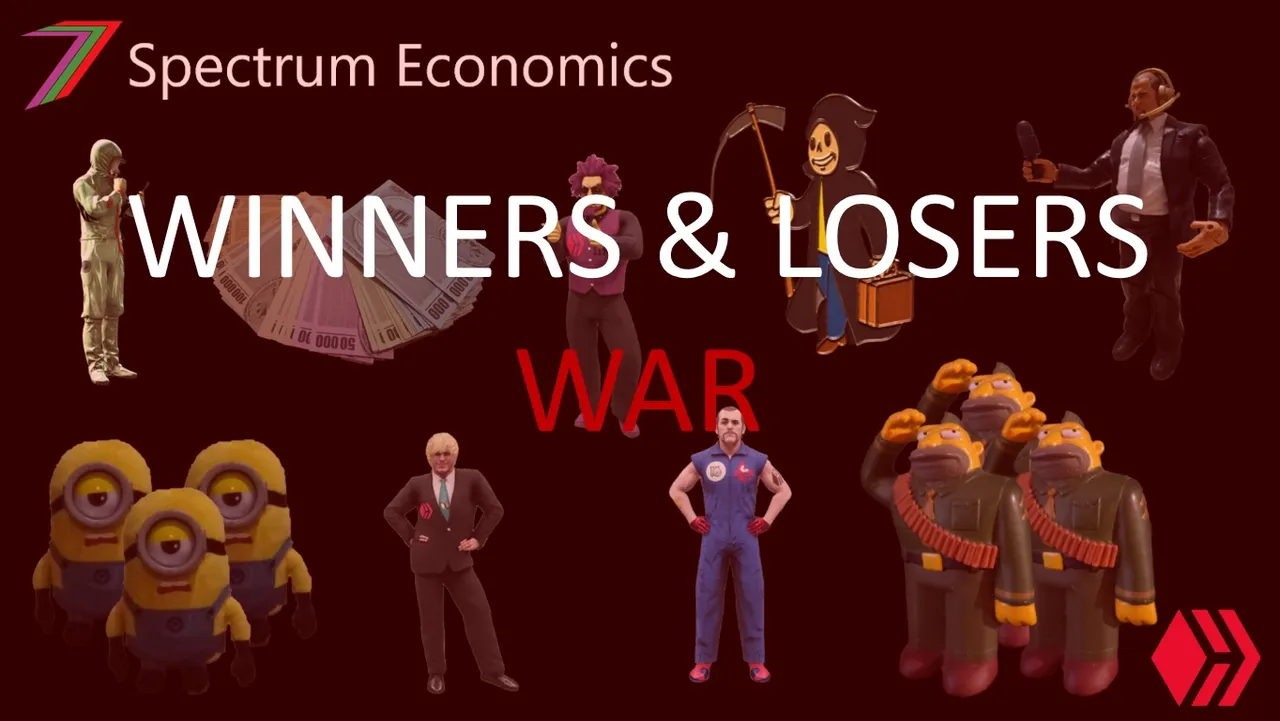
Despite, the platitudes about wars having no winners, they seem to occur very frequently. Humanity has not experienced a single day of global peace for over a century. Every day somewhere in the world there is a major conflict. As I write this post, there are wars/conflicts occurring In Israel/Palestine, Ethiopia, Yemen, Syria, Nigeria, Mexico, Congo, Sudan, Central Africa, Somalia, Peru, as well as many smaller conflicts in several other countries (Wikipedia).
The number of wars and conflicts have been trending upwards since the end of World War 2.
Number of Active State-based Conflicts since 1946
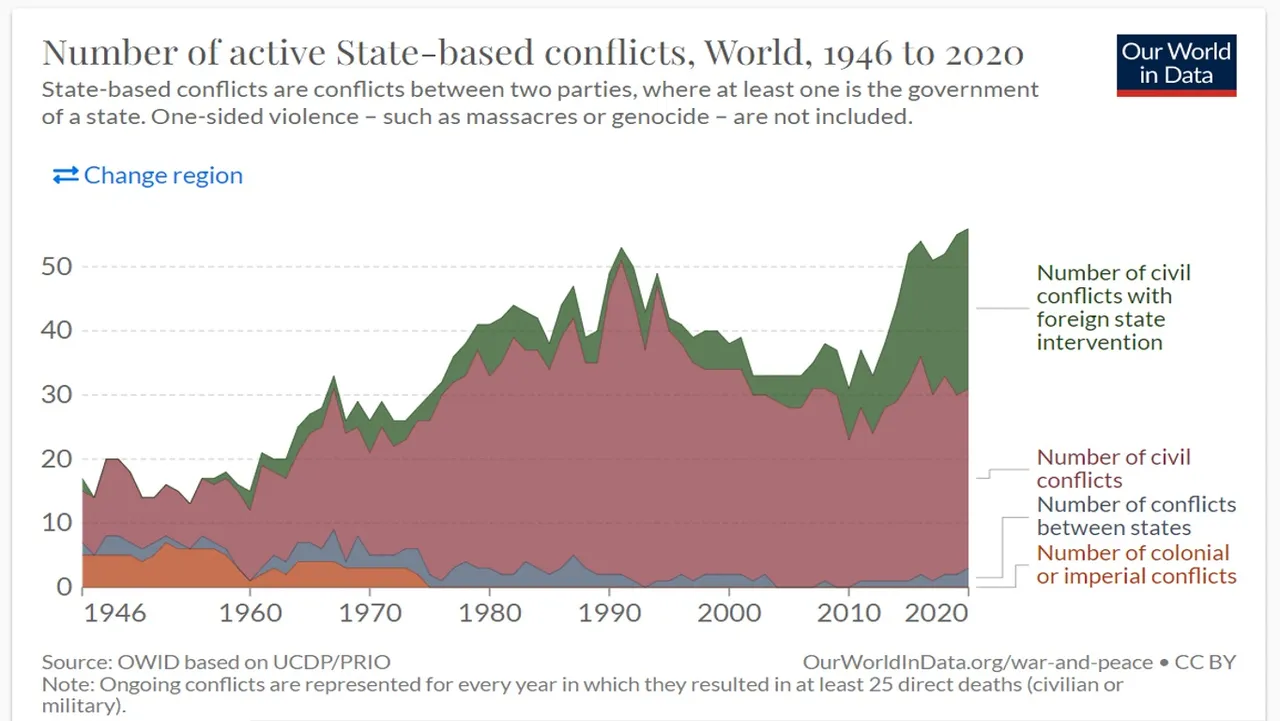
Source: Our World in Data
The number of direct deaths from war was falling until around 2010 but has increased again and has since remained higher than any year between 2000 and 2010. The higher death tolls appear to coincide with increased foreign state-intervention.
Deaths in State based conflict since 1946
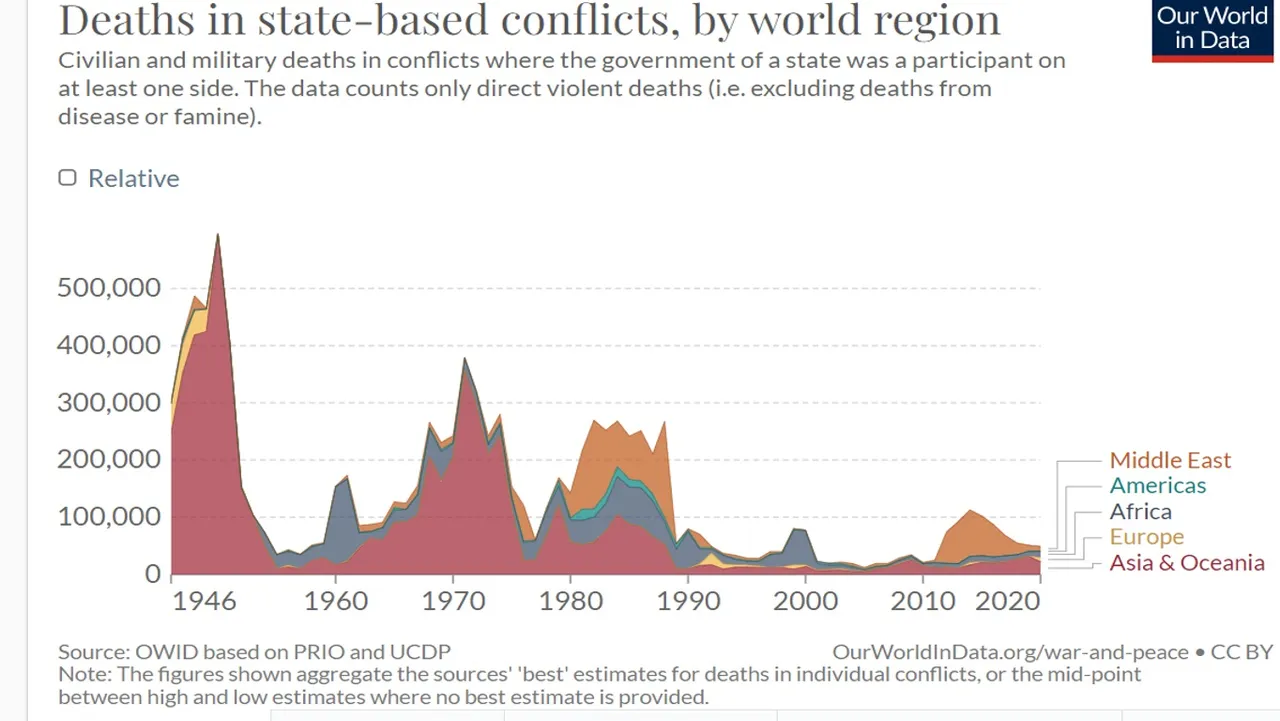
Source: Our World in Data
Those who start, support, fund, and/or provoke war do so because they believe it is to their benefit. The people who benefit the most from war often do so regardless of who wins the military conflict. I would argue that many of the winners and losers of war are the same regardless of where that war occurs. However, each war normally has a different focus. They are used to push certain agendas a little harder or lead them in a slightly different direction.
In this two-part series, I discuss who I believe will be the likely winners and losers from the Russia-Ukraine war. In Part One, I will discuss the losers and in Part Two, I will discuss the winners.
At this point, we should assume that this war is based around Ukraine. The military conflict is confined to Russian (including separatist groups) and Ukrainian forces, and the non-military conflicts such as economic, social, information and political extend to many other countries but are based around the military conflict between Russia and Ukraine. Our discussions will change if the military war extends to more countries.
Losers from this war
I will begin with the losers from this war. The majority of people who are involved in war will suffer regardless of who wins the military conflict. However, people on the losing end usually suffer more in terms of direct losses as well as in the aftermath of defeat. Below is a list of who (and what), I believe will be and are the losers from this war.
- Most of the people fighting in the war
- People of Ukraine
- Refugees in general
- People of neighbouring countries to Ukraine
- People of Russia
- People of sanctioning countries
- Traditional Fiat Money
- Small businesses
- Freedom (All)
Most of the people fighting in the war
The people who cause the wars never fight them. Instead, they are fought by mostly young men. Many of these men are brainwashed into thinking they are fighting for some noble cause. They might think they are defending their country, fighting extremists, liberating a minority group or simply following orders because of their blind faith in their command structure.
Some militaries have conscription. Young men and sometimes women are forced to join the military or otherwise, face serious consequences. Even some of the volunteers may end up remaining in the military out of fear of punishment for desertion.
Many of those fighting the war suffer hardships such as shortages of food and water, lack of rest, lack of proper healthcare, and psychological distress. Many suffer serious injuries or die in combat or training. Many soldiers suffer from post-traumatic stress disorder (PTSD). According to Hill & Ponton, military veterans are twice as likely to suffer from PTSD at some point.
PTSD in Military Veterans (USA)
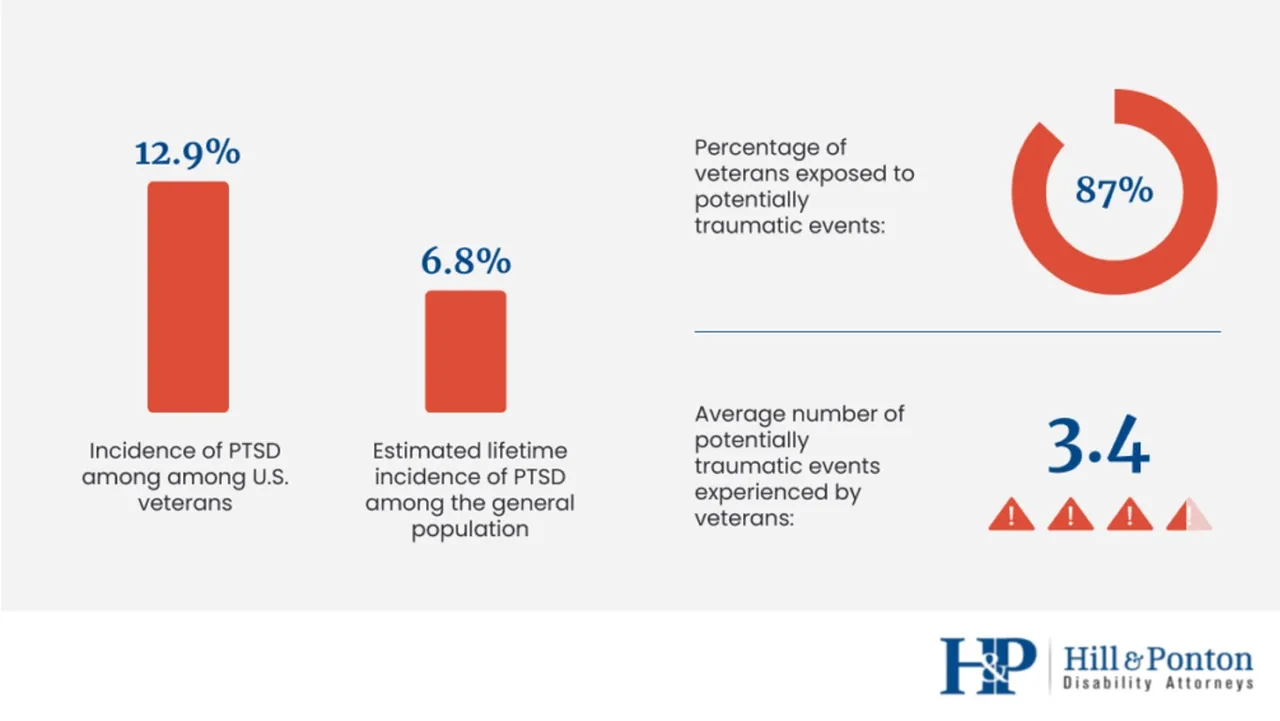
Source: Hill & Ponton
The invasion only began 3 weeks ago. It is unclear how many soldiers have died or are seriously injured on either side. The losses on the Ukrainian side can be expected to be considerably higher than on the Russian side (assumption based on progress of the war, Russian control of the air and sea, surrounding of Ukrainian military in the east, and early reports out of combat zones).
The war could have a long lasting psychological impact on soldiers on both sides considering the proximity, history, and closely linked cultures of people from these two countries. If the war is prolonged, the damage on both sides will considerably worsen.
People of Ukraine
The people of the invaded country are always the victims (i.e. losers) of any war. The extent of the hardships they will suffer varies depending on a number of factors. These factors include:
- Proximity to the heaviest fighting (closer they are the worse it is)
- The strategy of the invading military (all-out attack vs. focused)
- Intentions of invading military (takeover vs. destroy)
- The strategy of defending military (protect civilian lives vs. using civilians strategically)
- Availability of infrastructure to protect civilians from assault (underground shelters and warning systems)
- Ability to evacuate areas directly affected by the war (protected humanitarian corridors)
- Acceptance by neighbouring areas and countries (prepared and ready to accept them vs. unprepared and unwilling to accept them)
It is difficult to assess the full extent of Ukrainian civilian suffering. Those living in the areas closest to the fighting (mostly east and south) would be suffering the most. Many who have remained in these areas have limited access to electricity, food and water. Many of the people in these areas suffered for 8 years prior to this invasion from the Russo-Ukrainian war (started 2014).
The Ukrainian Government have put their people at further risk by handing out weapons; thus, making them a target for the Russian military. According to some reports, the Ukraine military have put civilian lives at risk by moving military equipment and personnel into civilian populated areas.
Several, humanitarian corridors have opened; this has enabled more civilians to evacuate the most dangerous areas. Unfortunately, the operation of these corridors are frequently interrupted by attacks. It is disputed which side are attacking these corridors.
In total, neighbouring countries such as Poland, Hungary, Slovakia, Russia, Moldova, Romania, and Belarus have welcomed over 2.5 million refugees in just the first three weeks of this war (BBC). Countries in the European Union and United Kingdom are also offering support to Ukrainian refugees.
Refugees in general
Ukrainian refugees are not the only refugees in the world. The number of refugees have been significantly increasing for over a decade. According to the UN Refugee Agency, there were over 82 million forcibly displaced people worldwide. This figure is almost double, what it was in 2010. See figure below.
Refugees Worldwide
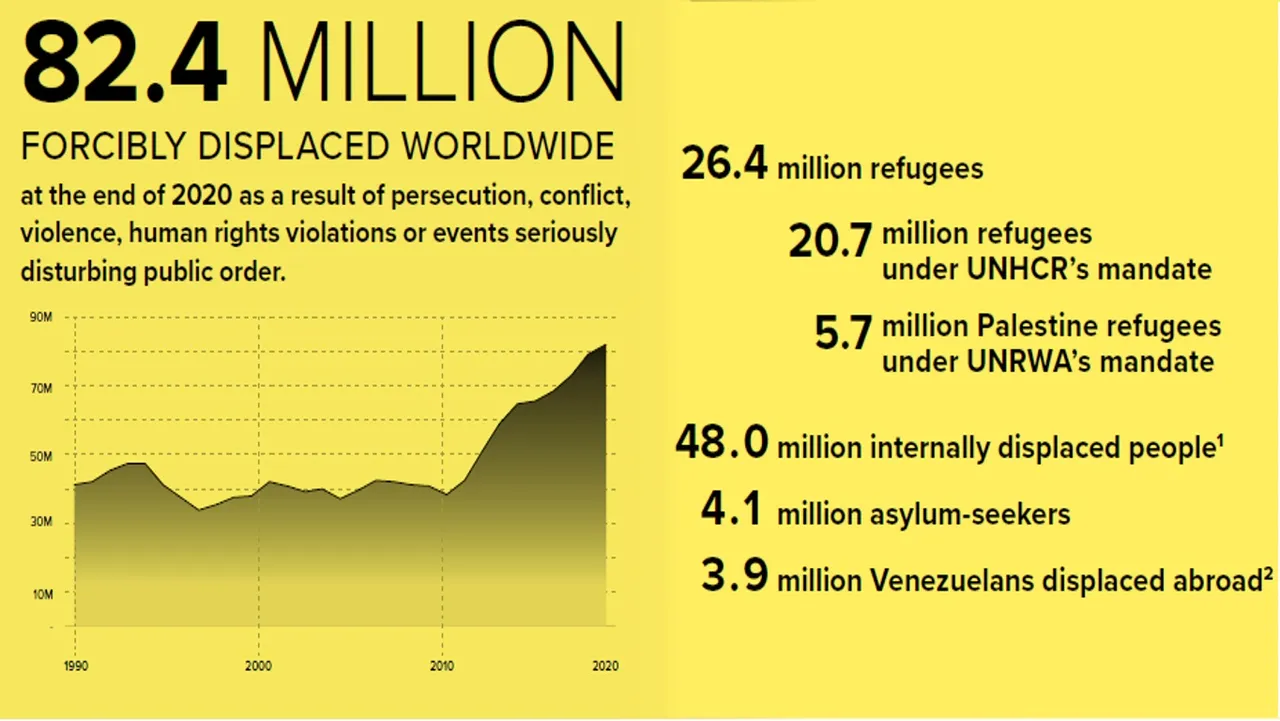
Source: UN Refugee Agency
As the number of refugees increase, the more difficult it becomes to help them. Resources are required to be spread over a larger group of people. People in countries accepting refugees may become less willing to accept them if they become negatively perceived for reasons such as religion and cultural differences (we saw this resentment from some of the people who favoured Brexit in the UK).
European countries have accepted a relatively high percentage of refugees and displaced people. Many of these refugees do not originate in Europe. Ukraine is in Europe and located very near countries typically accepting the most refugees. These countries will prioritise Ukrainian refugees over other refugees. This will be based on proximity, culture, and race. See figure below for countries that accept the most refugees.
Countries accepting refugees

Source: UN Refugee Agency
People of neighbouring countries to Ukraine
Typically, countries neighbouring the country that people are fleeing from take in the most refugees (UN Refugee Agency). Supporting refugees, takes an immediate toll on the country supporting them (financial and social). In the case of Ukraine, the inflow of refugees into neighbouring countries, Poland in particular, has been both massive and rapid. Arranging the logistics to support such a high number of people in a very short time is difficult.
There is also the possibility that the war in Ukraine could spill over into neighbouring countries. This could occur intentionally if either Russia expand their invasion or if NATA become involved in the war in Ukraine. This could occur unintentionally if Russia accidentally fires into a neighbouring country. The former is more likely to present a bigger problem for neighbouring countries.
The chances of NATO involvement is increasing. Mainstream media and the Ukrainian Government are still asking for a no-fly zone. European leaders (Prime Minister Mateusz Morawiecki of Poland, Prime Minister Petr Fiala of the Czech Republic and Slovenian Prime Minister Janez Janša) have met Ukrainian President Volodymyr Zelensky in Kyiv (The Hill); arranging meetings of world leaders in war zones is not smart. Doing so puts these leaders’ lives in danger and increases the risk of further escalating the conflict.
US Under Secretary of State for Political Affair Victoria Nuland has admitted the existence of Bioweapons Laboratories in Ukraine and hinted that the Russians might use them as part of their invasion. This increases the potential for a false flag event involving chemical weapons, which could justify NATO involvement. According to former Congresswoman Tulsi Gabbard, there is also the risk of accidental release of dangerous pathogens from bio labs located in war zones.
The continuous flow of weapons arriving in Poland and other neighbouring countries for use in Ukraine puts these countries at risk as Russia considers vehicles carrying weapons as legitimate military targets (Global Research).
People of Russia
Many people in Russia have close ties to people in Ukraine. Many people have family members in both Ukraine and Russia. According to the Week, as many as 11 million people in Russian have family members living in Ukraine. They would not want their family members harmed in this war.
The sanctions placed on Russia by western countries, as well as many other countries from around the world, will greatly affect Russian people, at least, in the short-run. The price of the Russian Ruble in US dollars crashed in response to the announcement of the harsh sanctions. However, it has since recovered a little as the Russian Government falls back on its strong economic relations through BRICS (Brazil, Russia, China, India, and South Africa).
The sanctions on Russia’s central bank could be one of the most harmful as it affects the central bank’s ability to function (Atlantic Council).
The number of companies pulling out of Russia appears to climb by the day (CNN). If these companies leave permanently, the impact on the economy and Russian people could be enormous (e.g. loss of employment as well as goods and services). It is also possible that these are just temporary pauses in activity, which will have a significantly smaller impact.
Russian people are facing racism (ethnic and nationality based) from people, organisations and even Governments outside their country.
Meta (i.e. Facebook) changed their rules regarding hate speech to allow its users to spread threats of violence against Russian people and officials. They have also allowed their users to show support for Neo-Nazi groups such as the Avoz Battalion (Reuters).
Wealthy Russians have had their assets frozen or stolen (The Guardian), as they are claimed to be Russian “Oligarchs”. An oligarch is a wealthy person with political power. However, the definition appears to have changed. The definition seems to refer to any wealthy Russian person who may have allegedly profited from some illegal dealings in the past. These crimes have not been proven to be true in any court of law nor even appear to have been investigated prior to Russia's invasion of Ukraine.
Russian citizens are being banned from international sporting events such as the Olympic games (Sky Sports) and international football events (Independent).
I expect hate crimes towards Russians to escalate. For example, a group of activists (i.e. thugs) temporarily took possession of the home a Russian “Oligarch” (Business Insider). The mainstream media are almost cheerleading these racist actions.
People of sanctioning countries (focus on EU countries)
Sanctions hurt people from both the sanctioned country and the sanctioning countries. The impact of these sanctions depend on a number of factors. Below are several of these factors.
- Size of the sanctioned country
- Size of the sanctioning countries
- The extent of the sanctions
- Dependence on goods and services provided by the sanctioned country
- Dependence on goods and services provided by the sanctioning countries
- Dependence on markets for goods and services provided by the sanctioned country
- Dependence on markets for goods and services provided by the sanctioning countries
- Ability to find alternative trade partners
Russia is a very large country. It has the largest land mass of any country in the world. It has a population of over 144 million people (ninth largest in the world). It is the third largest oil producer and second largest gas producer in the world. The European Union imports over 40% of its gas from Russia (Eurostat). Russia is also one of the largest exporters of wheat to the European Union (S&P Global). Russia relies heavily on trade with the European Union but they also trade heavily with China (OEC). Russia also has trade deals with India, which are currently not heavily utilised.
The European Union appear to have fewer options in regards to replacing Russian energy imports. Energy shortages could lead to shortages and inflation in almost every sector of the economy given the essential reliance on energy for operations. Stagflation (stagnant growth and inflation) is inevitable but arguable we might need new economic terminology to adequately describe what is going to occur.
Traditional Fiat Money
The massive increase in money supply combined with the decline in output growth over the past couple of years has led to an inevitable increase in inflation. Increases in price have been lagged because of lower demand caused by Covid-19 restrictions. Now that many restrictions have been removed, demand is returning. The newly created money becomes more active (increased velocity) in the economy and prices will increase unless output surges (i.e. Price = Money Supply × Velocity of Money / Output). The figures below show changes in money supply and output in the USA.
Money Supply USA (1962 to 2021)
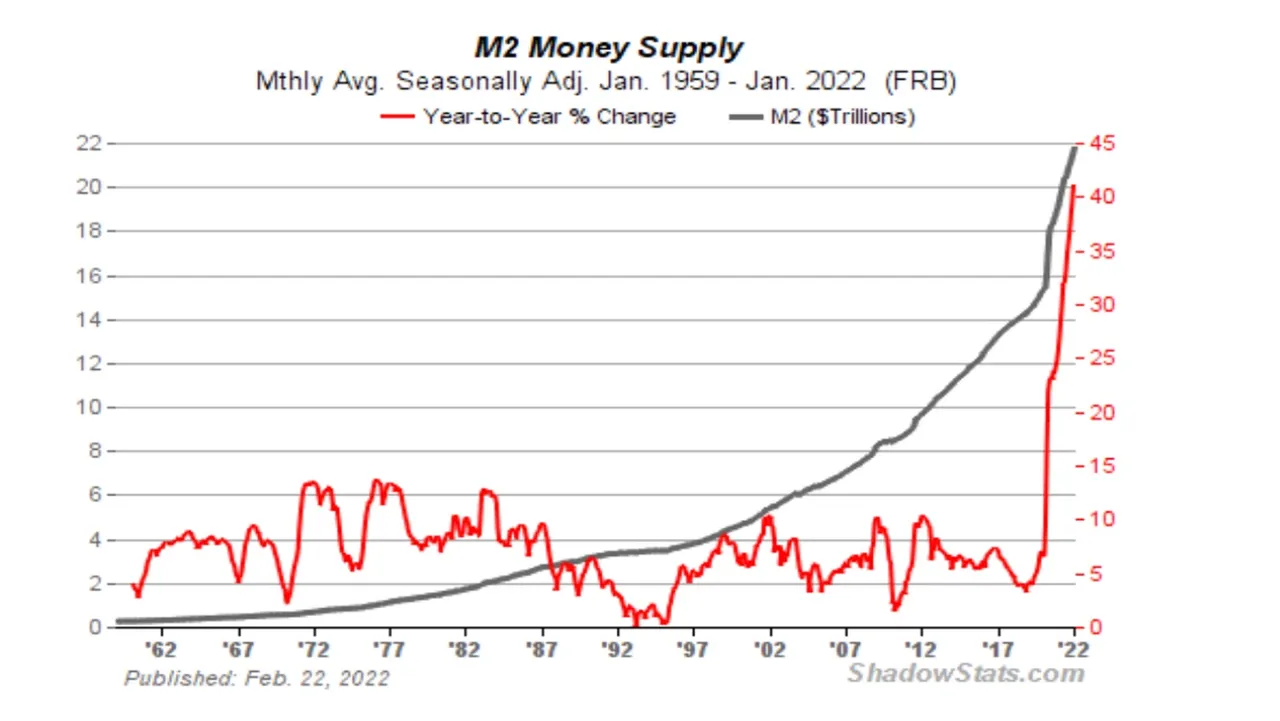
Source: Shadow Stats
GDP Growth USA (2010 to 2020 and projected for 2021 and 2022)
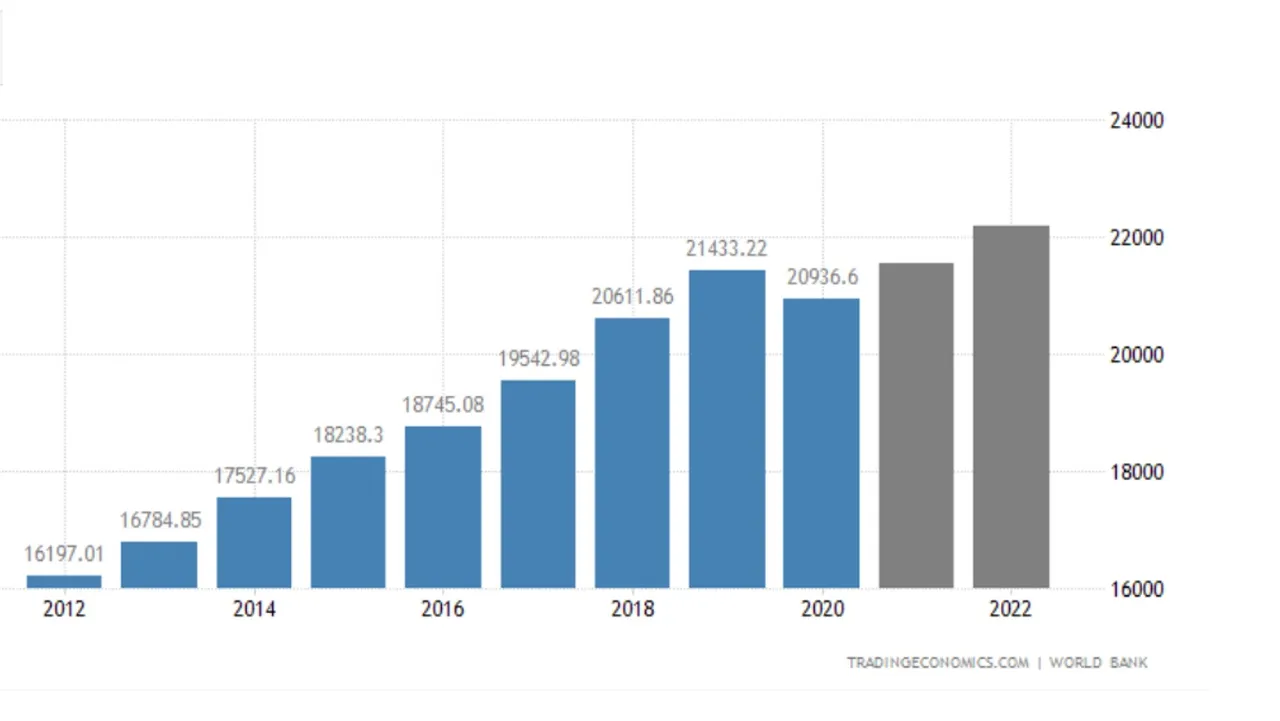
Source: Trading Economics
As explained earlier, the aggressive sanctions on Russia will have a significant impact on prices. The combination of increased money supply and increased energy prices will compound the overall impact on prices. Prices are mostly expressed in terms of fiat money (e.g. US dollars). Increasing prices can be described as the falling value of fiat money. This damages fiat money as a store value. Therefore, people will not want to hold fiat money. They will turn to other stores of value such as precious metals (gold and silver) or cryptocurrency (Bitcoin and Ethereum).
Small businesses
The two years of Covid-19 restrictions forced many small businesses to close permanently. The ones that did survive managed to adapt to the circumstances they were presented. However, it still came at a cost (e.g. higher loan repayments, costs of changing to meet new regulations).
The sanctions on Russia will present more problems for small businesses. These could include higher operating costs, delayed supplies, possible change of suppliers, loss of customers, and even loss of employees.
Large businesses will face similar problems to smaller businesses but they have the financial ability to survive longer and will eventually capture more of the market lost by smaller businesses as the sanctions persist. Large businesses are also better positioned to benefit from large Government contracts that will likely emerge during this crisis.
Freedom
Freedom took a massive step backwards during the two years of the Covid-19 crisis. Governments were able to close down entire economies for weeks and even months at a time. They could keep people prisoners in their homes based on flawed medical responses. They introduced digital ID to segregate people based on vaccination status for a vaccine that did not work and has proven to be more dangerous than any other vaccine in history (OpenVaers). The mainstream media consistently pushed lies and propaganda regarding Covid-19 and the vaccines. These restrictions have mostly ended for now but they have set an extremely dangerous precedent for the future.
Freedom is taking another step backwards. Russia’s invasions of Ukraine has directly destroyed the freedom of millions of people living in Ukraine. Regardless of when this war ends, people will not be able to return to a normal life for a long time. Russian is likely to install a new regime, which is favourable to them. Forcibly installing Governments in other countries does not lead to more freedom. It will not do so in Ukraine.
The sanctions taken by western countries (USA, UK, and the EU) have been extreme. Like with the extreme measures applied to Covid-19, they are settings new precedents. Governments consider it acceptable to steal from people they do not like. Mostly through the media, they appear to have convinced many of the public that this course of action is acceptable. Governments are not likely to limit theft to just Russian “Oligarchs”. Just prior to the Russian invasion, the Canadian Government were taking similar steps by threatening to freeze anti-vaccine mandate and protesters bank accounts (BBC). These steps become significantly easier if the brainwashed public supports them.
During the two years of Covid-19, information that questioned the mainstream narrative was censored. The same is happening again with the Russia-Ukraine war. This time might be worse. The European Union and United Kingdom have banned major non-western media such as RT and Sputnik. Their reasoning is that they are spreading disinformation. This is ironic considering the amount of disinformation and propaganda being spread by western mainstream media.
I know very little about Sputnik but I often watch RT. I find RT to be one of the least biased of all mainstream media I have watched in recent years. The real reason they are banned is because they were not willing to adopt the western narrative of this war. RT can be accessed on Odysee. Their coverage of the war is very different from western media. Their reports are much closer to where most of the fighting is occurring. They are interviewing people where the fighting has recently left. They are filming military bases that have been attacked by the Russian military as well as some of the equipment they have taken over. They have also shown drone footage of some of the airstrikes on the Ukrainian military.
End of Part One
I have most likely only touched the tip of iceberg in terms of discussing who have and will suffer because of this war. Many people have to pay a heavy price for the greed and ambition of just the few.
In Part Two of this series, I will discuss the people and organisations that stand to benefit from this war. It is important to understand who stands to gain the most from events (in this case, the Russia-Ukraine war) to gain a better perspective on why these events were initiated as well as who are most likely responsible or at least enabled them to occur in the first place. I recommend that you read my post Russia Invades Ukraine: What is going on?, the comments are also very informative.
More posts
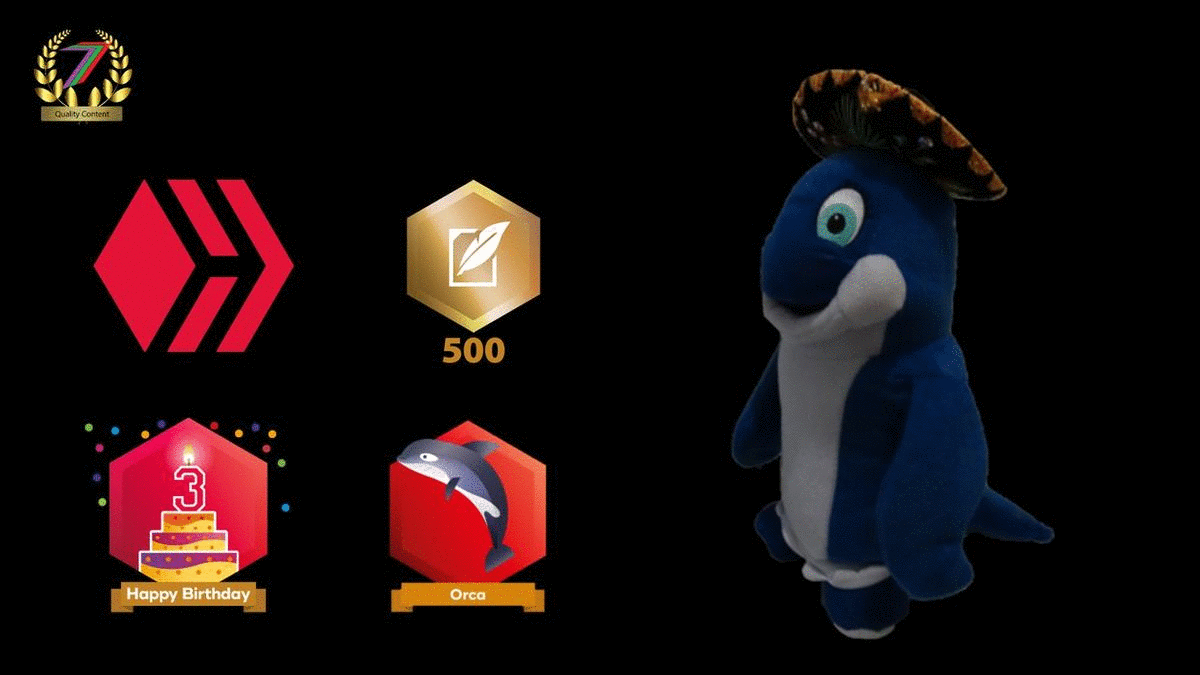
If you want to read any of my other posts, you can click on the links below. These links will lead you to posts containing my collection of works. These 'Collection of Works' posts have been updated to contain links to the Hive versions of my posts.
My CBA Udemy Course
The course contains over 10 hours of video, over 60 downloadable resources, over 40 multiple-choice questions, 2 sample case studies, 1 practice CBA, life time access and a certificate on completion. The course is priced at the Tier 1 price of £20. I believe it is frequently available at half-price.
Future of Social Media






